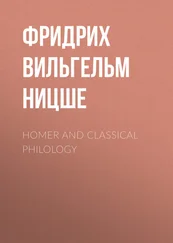Фридрих Ницше - Beyond Good and Evil
Здесь есть возможность читать онлайн «Фридрих Ницше - Beyond Good and Evil» весь текст электронной книги совершенно бесплатно (целиком полную версию без сокращений). В некоторых случаях можно слушать аудио, скачать через торрент в формате fb2 и присутствует краткое содержание. Год выпуска: 2014, Издательство: epubBooks Classics, Жанр: Философия, на английском языке. Описание произведения, (предисловие) а так же отзывы посетителей доступны на портале библиотеки ЛибКат.
- Название:Beyond Good and Evil
- Автор:
- Издательство:epubBooks Classics
- Жанр:
- Год:2014
- ISBN:нет данных
- Рейтинг книги:4 / 5. Голосов: 1
-
Избранное:Добавить в избранное
- Отзывы:
-
Ваша оценка:
- 80
- 1
- 2
- 3
- 4
- 5
Beyond Good and Evil: краткое содержание, описание и аннотация
Предлагаем к чтению аннотацию, описание, краткое содержание или предисловие (зависит от того, что написал сам автор книги «Beyond Good and Evil»). Если вы не нашли необходимую информацию о книге — напишите в комментариях, мы постараемся отыскать её.
Beyond Good and Evil — читать онлайн бесплатно полную книгу (весь текст) целиком
Ниже представлен текст книги, разбитый по страницам. Система сохранения места последней прочитанной страницы, позволяет с удобством читать онлайн бесплатно книгу «Beyond Good and Evil», без необходимости каждый раз заново искать на чём Вы остановились. Поставьте закладку, и сможете в любой момент перейти на страницу, на которой закончили чтение.
Интервал:
Закладка:
219. The practice of judging and condemning morally, is the favourite revenge of the intellectually shallow on those who are less so, it is also a kind of indemnity for their being badly endowed by nature, and finally, it is an opportunity for acquiring spirit and BECOMING subtle—malice spiritualises. They are glad in their inmost heart that there is a standard according to which those who are over–endowed with intellectual goods and privileges, are equal to them, they contend for the "equality of all before God," and almost NEED the belief in God for this purpose. It is among them that the most powerful antagonists of atheism are found. If any one were to say to them "A lofty spirituality is beyond all comparison with the honesty and respectability of a merely moral man"—it would make them furious, I shall take care not to say so. I would rather flatter them with my theory that lofty spirituality itself exists only as the ultimate product of moral qualities, that it is a synthesis of all qualities attributed to the "merely moral" man, after they have been acquired singly through long training and practice, perhaps during a whole series of generations, that lofty spirituality is precisely the spiritualising of justice, and the beneficent severity which knows that it is authorized to maintain GRADATIONS OF RANK in the world, even among things—and not only among men.
220. Now that the praise of the "disinterested person" is so popular one must—probably not without some danger—get an idea of WHAT people actually take an interest in, and what are the things generally which fundamentally and profoundly concern ordinary men—including the cultured, even the learned, and perhaps philosophers also, if appearances do not deceive. The fact thereby becomes obvious that the greater part of what interests and charms higher natures, and more refined and fastidious tastes, seems absolutely "uninteresting" to the average man—if, notwithstanding, he perceive devotion to these interests, he calls it desinteresse, and wonders how it is possible to act "disinterestedly." There have been philosophers who could give this popular astonishment a seductive and mystical, other–worldly expression (perhaps because they did not know the higher nature by experience?), instead of stating the naked and candidly reasonable truth that "disinterested" action is very interesting and "interested" action, provided that…"And love?"—What! Even an action for love's sake shall be "unegoistic"? But you fools—! "And the praise of the self–sacrificer?"—But whoever has really offered sacrifice knows that he wanted and obtained something for it—perhaps something from himself for something from himself; that he relinquished here in order to have more there, perhaps in general to be more, or even feel himself "more." But this is a realm of questions and answers in which a more fastidious spirit does not like to stay: for here truth has to stifle her yawns so much when she is obliged to answer. And after all, truth is a woman; one must not use force with her.
221. "It sometimes happens," said a moralistic pedant and trifle–retailer, "that I honour and respect an unselfish man: not, however, because he is unselfish, but because I think he has a right to be useful to another man at his own expense. In short, the question is always who HE is, and who THE OTHER is. For instance, in a person created and destined for command, self–denial and modest retirement, instead of being virtues, would be the waste of virtues: so it seems to me. Every system of unegoistic morality which takes itself unconditionally and appeals to every one, not only sins against good taste, but is also an incentive to sins of omission, an ADDITIONAL seduction under the mask of philanthropy—and precisely a seduction and injury to the higher, rarer, and more privileged types of men. Moral systems must be compelled first of all to bow before the GRADATIONS OF RANK; their presumption must be driven home to their conscience—until they thoroughly understand at last that it is IMMORAL to say that 'what is right for one is proper for another.'"—So said my moralistic pedant and bonhomme. Did he perhaps deserve to be laughed at when he thus exhorted systems of morals to practise morality? But one should not be too much in the right if one wishes to have the laughers on ONE'S OWN side; a grain of wrong pertains even to good taste.
222. Wherever sympathy (fellow–suffering) is preached nowadays—and, if I gather rightly, no other religion is any longer preached—let the psychologist have his ears open through all the vanity, through all the noise which is natural to these preachers (as to all preachers), he will hear a hoarse, groaning, genuine note of SELF–CONTEMPT. It belongs to the overshadowing and uglifying of Europe, which has been on the increase for a century (the first symptoms of which are already specified documentarily in a thoughtful letter of Galiani to Madame d'Epinay)—IF IT IS NOT REALLY THE CAUSE THEREOF! The man of "modern ideas," the conceited ape, is excessively dissatisfied with himself—this is perfectly certain. He suffers, and his vanity wants him only "to suffer with his fellows."
223. The hybrid European—a tolerably ugly plebeian, taken all in all—absolutely requires a costume: he needs history as a storeroom of costumes. To be sure, he notices that none of the costumes fit him properly—he changes and changes. Let us look at the nineteenth century with respect to these hasty preferences and changes in its masquerades of style, and also with respect to its moments of desperation on account of "nothing suiting" us. It is in vain to get ourselves up as romantic, or classical, or Christian, or Florentine, or barocco, or "national," in moribus et artibus: it does not "clothe us"! But the "spirit," especially the "historical spirit," profits even by this desperation: once and again a new sample of the past or of the foreign is tested, put on, taken off, packed up, and above all studied—we are the first studious age in puncto of "costumes," I mean as concerns morals, articles of belief, artistic tastes, and religions; we are prepared as no other age has ever been for a carnival in the grand style, for the most spiritual festival—laughter and arrogance, for the transcendental height of supreme folly and Aristophanic ridicule of the world. Perhaps we are still discovering the domain of our invention just here, the domain where even we can still be original, probably as parodists of the world's history and as God's Merry–Andrews,—perhaps, though nothing else of the present have a future, our laughter itself may have a future!
224. The historical sense (or the capacity for divining quickly the order of rank of the valuations according to which a people, a community, or an individual has lived, the "divining instinct" for the relationships of these valuations, for the relation of the authority of the valuations to the authority of the operating forces),—this historical sense, which we Europeans claim as our specialty, has come to us in the train of the enchanting and mad semi–barbarity into which Europe has been plunged by the democratic mingling of classes and races—it is only the nineteenth century that has recognized this faculty as its sixth sense. Owing to this mingling, the past of every form and mode of life, and of cultures which were formerly closely contiguous and superimposed on one another, flows forth into us "modern souls"; our instincts now run back in all directions, we ourselves are a kind of chaos: in the end, as we have said, the spirit perceives its advantage therein. By means of our semi–barbarity in body and in desire, we have secret access everywhere, such as a noble age never had; we have access above all to the labyrinth of imperfect civilizations, and to every form of semi–barbarity that has at any time existed on earth; and in so far as the most considerable part of human civilization hitherto has just been semi–barbarity, the "historical sense" implies almost the sense and instinct for everything, the taste and tongue for everything: whereby it immediately proves itself to be an IGNOBLE sense. For instance, we enjoy Homer once more: it is perhaps our happiest acquisition that we know how to appreciate Homer, whom men of distinguished culture (as the French of the seventeenth century, like Saint–Evremond, who reproached him for his ESPRIT VASTE, and even Voltaire, the last echo of the century) cannot and could not so easily appropriate—whom they scarcely permitted themselves to enjoy. The very decided Yea and Nay of their palate, their promptly ready disgust, their hesitating reluctance with regard to everything strange, their horror of the bad taste even of lively curiosity, and in general the averseness of every distinguished and self–sufficing culture to avow a new desire, a dissatisfaction with its own condition, or an admiration of what is strange: all this determines and disposes them unfavourably even towards the best things of the world which are not their property or could not become their prey—and no faculty is more unintelligible to such men than just this historical sense, with its truckling, plebeian curiosity. The case is not different with Shakespeare, that marvelous Spanish–Moorish–Saxon synthesis of taste, over whom an ancient Athenian of the circle of AEschylus would have half–killed himself with laughter or irritation: but we—accept precisely this wild motleyness, this medley of the most delicate, the most coarse, and the most artificial, with a secret confidence and cordiality; we enjoy it as a refinement of art reserved expressly for us, and allow ourselves to be as little disturbed by the repulsive fumes and the proximity of the English populace in which Shakespeare's art and taste lives, as perhaps on the Chiaja of Naples, where, with all our senses awake, we go our way, enchanted and voluntarily, in spite of the drain–odour of the lower quarters of the town. That as men of the "historical sense" we have our virtues, is not to be disputed:—we are unpretentious, unselfish, modest, brave, habituated to self–control and self–renunciation, very grateful, very patient, very complaisant—but with all this we are perhaps not very "tasteful." Let us finally confess it, that what is most difficult for us men of the "historical sense" to grasp, feel, taste, and love, what finds us fundamentally prejudiced and almost hostile, is precisely the perfection and ultimate maturity in every culture and art, the essentially noble in works and men, their moment of smooth sea and halcyon self–sufficiency, the goldenness and coldness which all things show that have perfected themselves. Perhaps our great virtue of the historical sense is in necessary contrast to GOOD taste, at least to the very bad taste; and we can only evoke in ourselves imperfectly, hesitatingly, and with compulsion the small, short, and happy godsends and glorifications of human life as they shine here and there: those moments and marvelous experiences when a great power has voluntarily come to a halt before the boundless and infinite,—when a super–abundance of refined delight has been enjoyed by a sudden checking and petrifying, by standing firmly and planting oneself fixedly on still trembling ground. PROPORTIONATENESS is strange to us, let us confess it to ourselves; our itching is really the itching for the infinite, the immeasurable. Like the rider on his forward panting horse, we let the reins fall before the infinite, we modern men, we semi–barbarians—and are only in OUR highest bliss when we—ARE IN MOST DANGER.
Читать дальшеИнтервал:
Закладка:
Похожие книги на «Beyond Good and Evil»
Представляем Вашему вниманию похожие книги на «Beyond Good and Evil» списком для выбора. Мы отобрали схожую по названию и смыслу литературу в надежде предоставить читателям больше вариантов отыскать новые, интересные, ещё непрочитанные произведения.
Обсуждение, отзывы о книге «Beyond Good and Evil» и просто собственные мнения читателей. Оставьте ваши комментарии, напишите, что Вы думаете о произведении, его смысле или главных героях. Укажите что конкретно понравилось, а что нет, и почему Вы так считаете.












